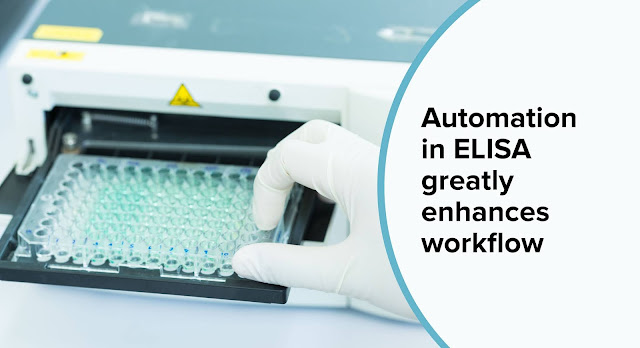Automation in ELISA greatly enhances workflow

The automation of ELISA systems, in the recent past, has contributed to improving the turnaround time for critical tests. Enzyme-linked immune sorbent assay (ELISA) is a highly sensitive and selective analytical technique that is commonly used to detect the presence of a specific protein (antigen or antibody) in blood samples. Whether a lab works with direct, indirect, sandwich or competitive assays, ELISA protocols involve an exhausting number of dispensing, washing and incubating steps. However, this continues to remain the most widely used microplate assay in diagnostics and research. Need for automation In the wake of the increasing need to conduct different assays for infectious disease and hormone panels, management of multiple ELISA protocols manually, can be time-consuming. This is where automation of ELISA protocols plays a role in ensuring reliability and consistency in: Time and temperature of incubation Reproducibility of washing process to avoid carry-over ...